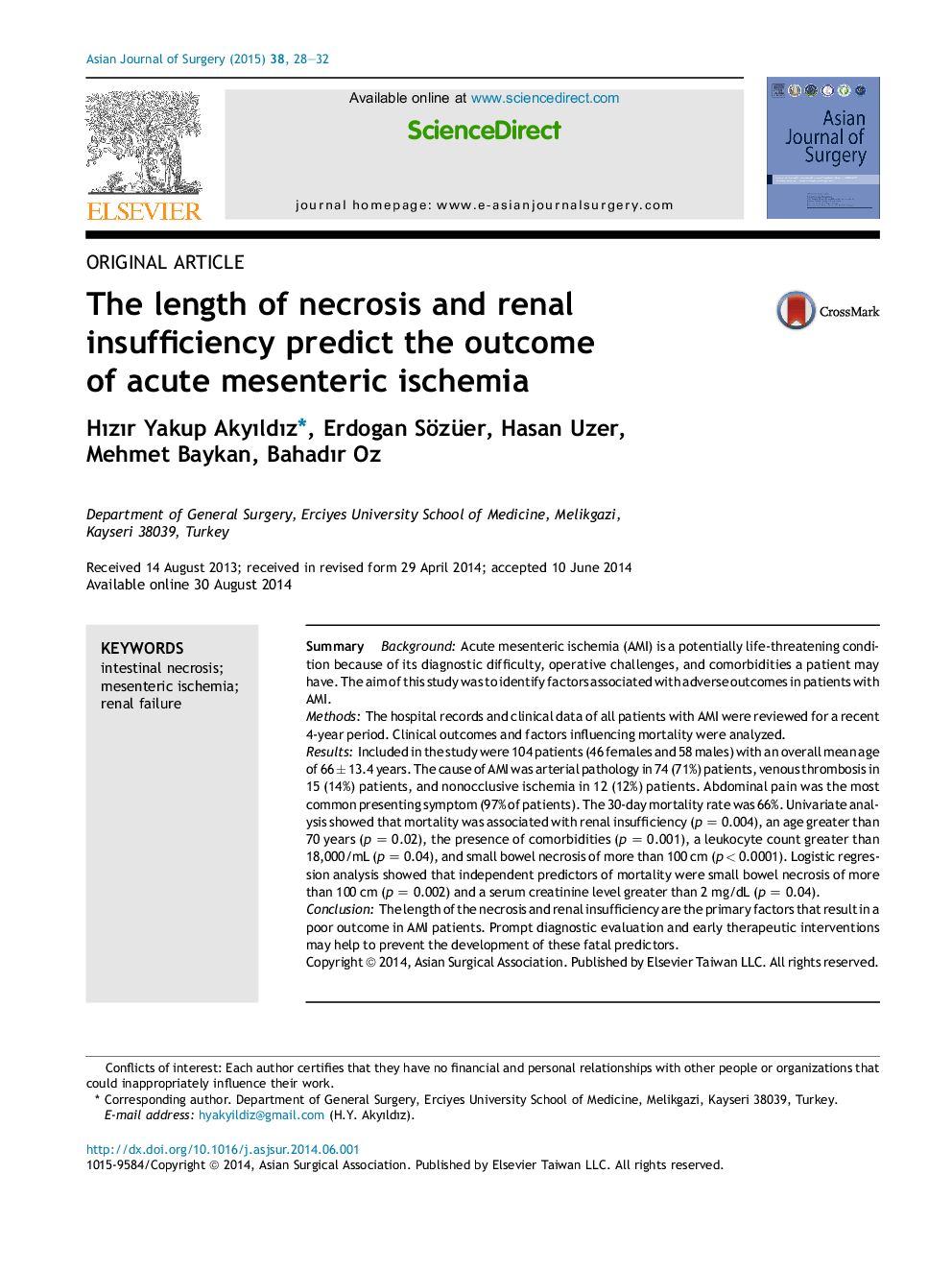| Article ID | Journal | Published Year | Pages | File Type |
|---|---|---|---|---|
| 4282787 | Asian Journal of Surgery | 2015 | 5 Pages |
SummaryBackgroundAcute mesenteric ischemia (AMI) is a potentially life-threatening condition because of its diagnostic difficulty, operative challenges, and comorbidities a patient may have. The aim of this study was to identify factors associated with adverse outcomes in patients with AMI.MethodsThe hospital records and clinical data of all patients with AMI were reviewed for a recent 4-year period. Clinical outcomes and factors influencing mortality were analyzed.ResultsIncluded in the study were 104 patients (46 females and 58 males) with an overall mean age of 66 ± 13.4 years. The cause of AMI was arterial pathology in 74 (71%) patients, venous thrombosis in 15 (14%) patients, and nonocclusive ischemia in 12 (12%) patients. Abdominal pain was the most common presenting symptom (97% of patients). The 30-day mortality rate was 66%. Univariate analysis showed that mortality was associated with renal insufficiency (p = 0.004), an age greater than 70 years (p = 0.02), the presence of comorbidities (p = 0.001), a leukocyte count greater than 18,000/mL (p = 0.04), and small bowel necrosis of more than 100 cm (p < 0.0001). Logistic regression analysis showed that independent predictors of mortality were small bowel necrosis of more than 100 cm (p = 0.002) and a serum creatinine level greater than 2 mg/dL (p = 0.04).ConclusionThe length of the necrosis and renal insufficiency are the primary factors that result in a poor outcome in AMI patients. Prompt diagnostic evaluation and early therapeutic interventions may help to prevent the development of these fatal predictors.
